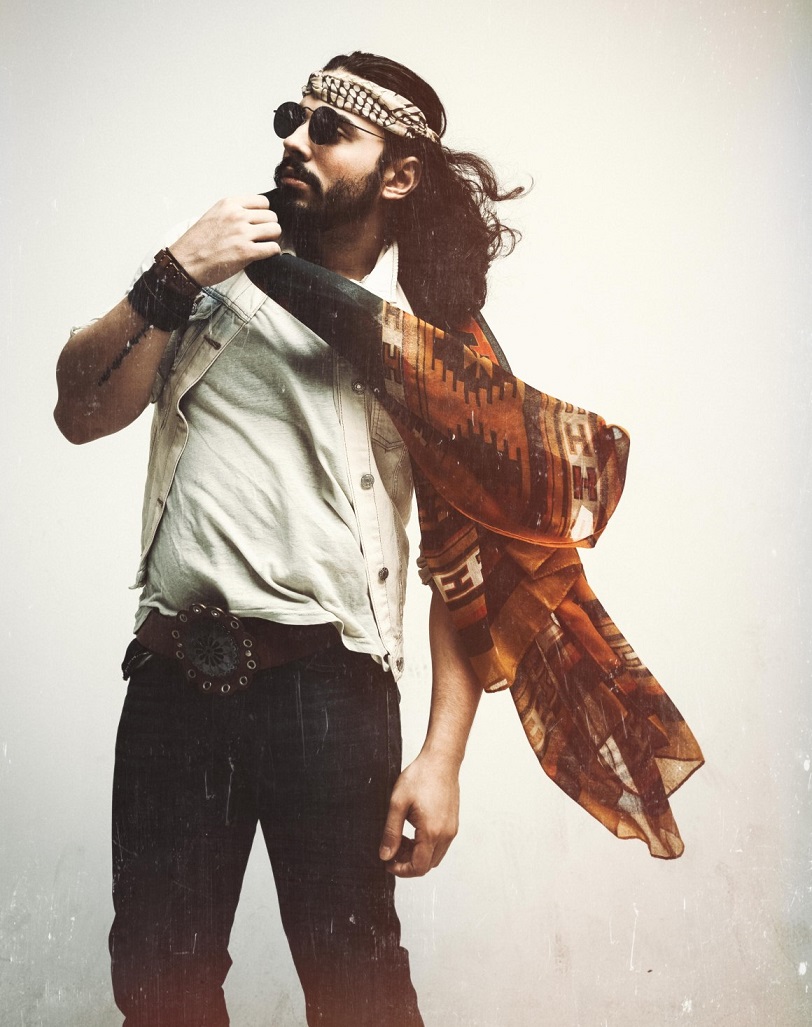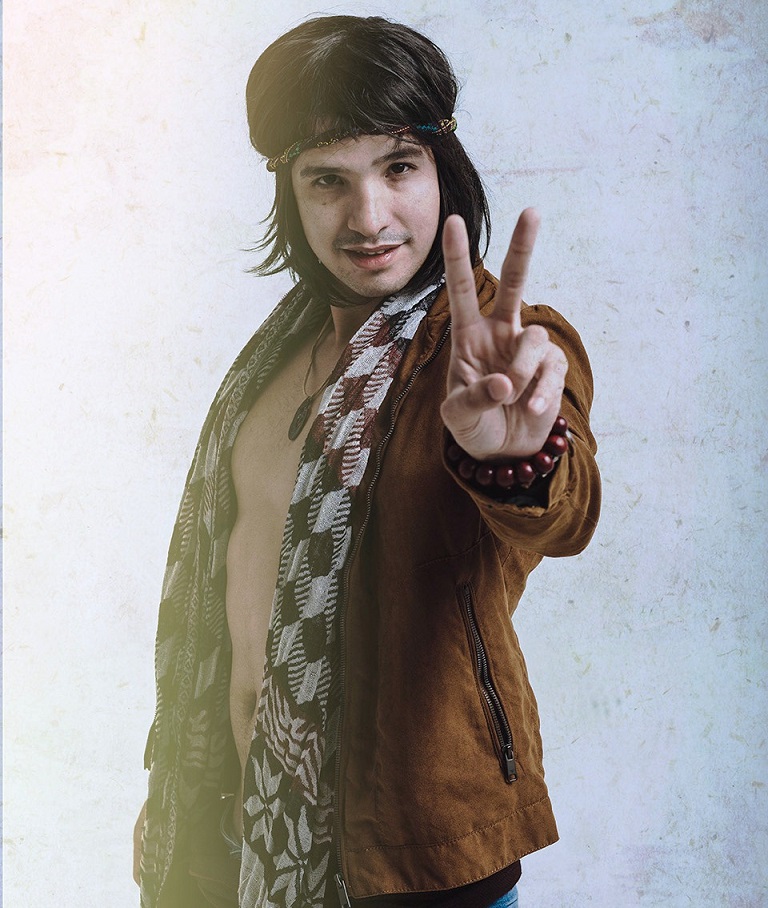
Caisa Borromeo as Sheila
Repertory Philippines has taken a bold step on its 50th year in mounting the late Sixtiesmusical Hair that extols the lives of flower children and anti-war activists. Hair is on its last weekend run (until Dec. 17) at Onstage Theater, Greenbelt 1, Makati City.
Survivors from the original, pre-martial law production at a University of the Philippines Diliman campus theater are still around to share lessons from their era. They may even raise their eyebrows at the irony found in the Rep, identified with “apolitical” and “escapist” fare, taking on a play that has a markedly political content. With the big business capital of Makati as venue at that.
In his director’s notes, Chris Millado, known to be steeped in political theater, recalled how while writing a research paper in college, he learned of the earlier Hair production that included in its cast such legends as Joey “Pepe” Smith, Becky Demetillo (now Abraham), Gigi Dueñas.
That first production also featured “the first nude scene on the Philippine stage,” he continued. The current Hair, with music by Galt Macdemot and book and lyrics by Gerome Ragni and James Rado, has an oh-so-brief moment at the close of the first act when the entire cast disrobes behind a see-through curtain.
But the message isn’t lost on the millennial and Baby Boomer audience that “peace is cheaper” than war or war-mongering (Hair is set at the height of the Vietnam War). The military-industrial complex is still in place, and war remains good for the arms business.
There is a hint of relevance to contemporary times (contemporary to mean the Duterte administration’s rabid anti-drug policy) as the characters take tokes of marijuana, hashish or trip on heavier hallucinogens.

George Schulze as Berger
“Very here and now,” Rep artistic director Joy Virata put it. Dueñas begged to disagree, saying, “Duterte’s drug war is a farce, a cover-up for their drug smuggling business. It has nothing to do with what went on back in the Seventies.”
Hair continues to have revivals in other cities abroad. Does it have the timeless appeal of more traditionally told musicals like South Pacific, The Sound of Music et al? Dueñas, writing from the French West Indies where she runs a theater workshop for children and adolescents, said, “I don’t know if it’s timeless. It belongs to the era of flower power and hippies. They belong to the past. Hair is part of our nostalgia for a beautiful epoch that has passed.”
The tribe of flower children living in a commune in an unnamed forest is led by the couple Berger (an intense George Schulze) and Sheila (Caisa Borromeo). Their initiate is wishy-washy Claude (Markki Stroem) who can’t make up his mind if he should join in the burning of draft cards or be a dutiful son and become an anti-communist soldier of Lyndon B. Johnson.
He also completes the sex/love triangle made up of Berger and Sheila. After all, the era covered is from the Sixties to the Seventies when such concepts as free love and open marriage were bandied about and practiced by those who dared.
There is one moving moment when Sheila offers the gift of a shirt to Berger. She is rebuffed roughly. She sings “Easy To Be Hard,” an indictment of insensitive activists enamored with their higher causes but blind to the needs of an individual friend: “How can people be so heartless / How can people be so cruel / Easy to be hard / Easy to be cold…/ Especially people who care about strangers / Who care about evil and social injustice / Do you only care about the bleeding crowd / How about I need a friend, I need a friend.”
The other recognizable song is “Good Morning Starshine” interpreted on the guitar by single mom-to-be Jeanie (played by Maronne Cruz). How many hippies and non-hippies have wakened to this winsome tune playing in their heads?

Markki Stroem as Claude
The cast members may have stuck strictly to their roles and stayed in character, resulting in what others perceived as a lack of spontaneity in a play about “beads, flowers, freedom, happiness.” Perhaps it’s the Rep training which is well and good. But there was PJ Rebullida’s choreography to loosen everybody up, Ejay Yatco’s musical direction to keep the beat up.
Dueñas recalled how in her time “who knew what our roles were? I was part of the chorus, but every time we played, everybody would think of something to do spontaneously and that added color to the production. One night, Ube Abeleda went on stage dressed as Imelda Marcos with her Blue Ladies. Did we live Hair offstage? Of course we did! We were hippies but maybe not Danny Javier. Ha ha ha!”
To the current Hair cast and artistic team, thank you for again letting the sunshine in!
